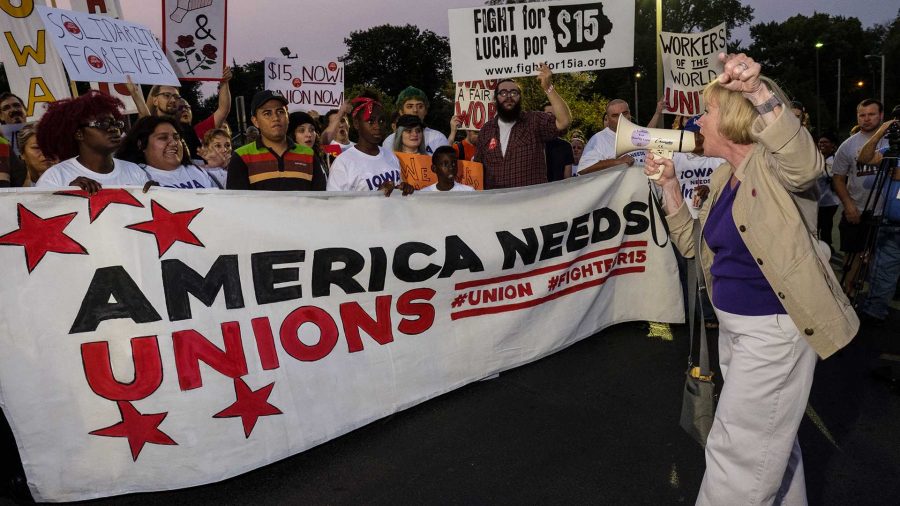The state of Iowa unions looks grim.
By Mars Thera Pope
Unions for public workers today have lost their power in Iowa. Such unions cannot negotiate health insurance, seniority perks, or evaluation procedure. They must get recertified every time they face a new contract negotiation — typically every two to three years — in which they need a majority of all workers to vote in favor of the union. The rules on how the unions will get recertified are being settled and rushed since the time period for recertification is quickly approaching. This leaves little time for the majority-right Iowa House of Representatives to think and little time for Iowans to refute.
Labor Day highlighted all that unions have gone through and done, but where are they today? In Iowa, the repeating recertification process takes away time, money, and resources from unions. Current laws are clearly an attempt at union-busting. The purpose of unions is to make sure that workers’ rights are protected, and items such as health care, wages, and overtime pay are kept at fair levels. This purpose is objectively being clogged by current union legislation put in place by those on the right who hold business owners closer to heart.
RELATED: Half of states collective bargaining units up for potential recertification
The argument is that this law was put into place so that local governmental entities, including school boards, could better “manage” their employees, promote better performance, and most importantly, reduce costs. With workers no longer being able to fight the officials’ every move, they can make sure that the workers take a hit so that they can live more comfortably. That’s fine; the heads of the local government may have worked hard to get where they’re at. The problem comes when workers in a union no longer receive health care or other privileges needed to live comfortably and can no longer bargain to get them back. This is a problem we saw COGS face at the University of Iowa. COGS was able to overcome the hurdle by protesting and other forms of organizing until the state gave in and agreed to keep the previous terms for the next academic year. Not all unions will have or have had the same experience.
The claim that recertification holds unions more accountable to their members is harder to argue with. It’s understandable that the majority of workers should like what union accomplish for them. However, when you have a large group, it is very difficult to get everyone on the same page. It isn’t hard to argue that our country is split many ways. And in just two or three years, not much may
happen or workers may have an unrealistic thing they would like to obtain, and when it is not obtained, they will vote against the union, forcing the union to no longer exist. This is just the beginning of problems facing unions today, keeping unions from gaining workers’ rights and putting their fate in the hands of state officials.



